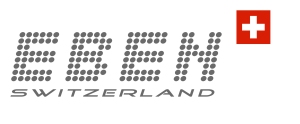Study on legal framework on Human Rights for EU enterprises working outside EU
Posted: October 31, 2010 Filed under: Law | Tags: CSR, EU law, hard law, Legal framework, Mandatory rules, Ruggie report Leave a commentThe University of Edingburgh (Daniel Augenstein) prepared a study for the EU Commission (“Enterprise and industry”) called “Study of the Legal Framework on Human Rights and the Environment Applicable to European Enterprises Operating Outside the EU“. Its purpose is defined as follows:
“to ‘analyse the legal framework on human rights and the environment applicable to European enterprises operating outside the European Union’. The study aims at complementing the UN Framework (by Ruggie) by providing an overview of European and EU Member State law relevant to human rights and environmental protection in relation to European corporations operating outside the European Union, including pertinent international agreements and general international law. The study’s focus on the European legal framework implies that it is predominantly concerned with the 1st and the 3rd pillar of the UN Framework.”
The study identifies three patters of corporate human rights or enviornmental abuse outside the EU:
- Abuses committed by subsidiaries or contractors of European corporations. One consequence is that “some European companies may benefit from the operations of their third-party subsidiaries and contractors, while not being held directly responsible”.
- “Third-country victims can encounter significant obstacles in obtaining effective redress both in the third country and in the European Union”.
- “The States in which subsidiaries and contractors of European corporations operate and/or EU Member States from which European corporations operate are often at least indirectly involved in corporate abuses of human rights and the environment.”
It identifies two challenges to legal reform:
- “… international human rights law and international environmental law generally do not directly impose obligations on MNCs to protect human rights and the environment”.
- “… under an international legal regime that attributes jurisdiction primarily on the basis of territory, the exercise of extraterritorial jurisdiction to protect human rights and the environment often encounters legal and political obstacles”.
The following quotes just highlight some findings from the executive summary that seemed most relevant for this blog:
- The European Union and the EU Member States do not always make full use of existing legal opportunities to protect human rights and the environment in relation to European corporations operating outside the European Union.
- because State measures in these areas are primarily geared towards liberalising trade and promoting investment, States often do not (fully) realise or utilise their potential to protect human rights and the environment through trade law, investment rules, and related legal measures. This can lead to substantial legal and policy incoherence and gaps in protecting human rights and the environment, which often entails significant negative consequences for victims, corporations and States themselves.
- two main ways in which the European Union and the EU Member States can protect human rights and the environment against extraterritorial corporate through trade law: first, trade restrictions that prevent corporations from exporting or importing goods harmful to human rights and the environment; and second, free trade agreements and conditions imposed upon preferential trade under preference regimes that aim at ensuring human rights and environmental protection in third countries in which European corporations operate.
- Labelling schemes, such as the EU voluntary ecolabel award scheme, can encourage European corporations to control and prevent negative human rights and environmental impacts of their third-country subsidiaries and suppliers. One way to sanction corporate non-compliance with requirements of labelling schemes in which they participate … is through the medium of existing rules dealing with commercial practices and misleading advertising.
- Public procurement provides another opportunity for the European Union and its Member States to protect human rights and the environment in relation to European corporations operating outside the European Union. In particular, public procurement can set standards that apply also to third country subsidiaries and suppliers, thus penetrating the whole production chain.
- Encouraging or requiring corporations to report on their human rights and environmental policies and impacts would help to establish human rights and environmental protection as core business concerns.
Do we need more rules for the economy?
Posted: October 11, 2010 Filed under: Conferences | Tags: EBEN, Hamburg, Mandatory rules, Zürich Leave a comment The European Business Ethics Network (EBEN) Switzerland holds its annual meeting on 29th of October. At the meeting they discuss the question: Do we need more or less rules for the economy?
The European Business Ethics Network (EBEN) Switzerland holds its annual meeting on 29th of October. At the meeting they discuss the question: Do we need more or less rules for the economy?
Here is the German announcement:
Das erste Jahrestreffen des Schweizerischen Netzwerks für Wirtschaftsethik EBEN-Switzerland findet bei unserem Vorstandsmitglied Markus Huppenbauer in den Räumlichkeiten des Ethik-Zentrums der Universität Zürich statt (15-17:15 Uhr, Zollikerstr. 115 im Kutscherhaus (Raum E2). Neben der Mitgliederversammlung stellt der SEK (Schweizerischer Evangelischer Kirchenbund) seine Studie „Rechtes Haushalten und faires Spiel“ vor und zur Diskussion. Ferner laden wir alle Anwesenden zur Diskussion der Frage ein: „Regeln für die Wirtschaft: Braucht es mehr oder weniger?“ Der Eintritt ist frei – Anmeldung bitte unter info(at)eben-switzerland.ch
From April 8-9 this question will be discussed in more detail at the annual meeting of the DNWE in Hamburg.

